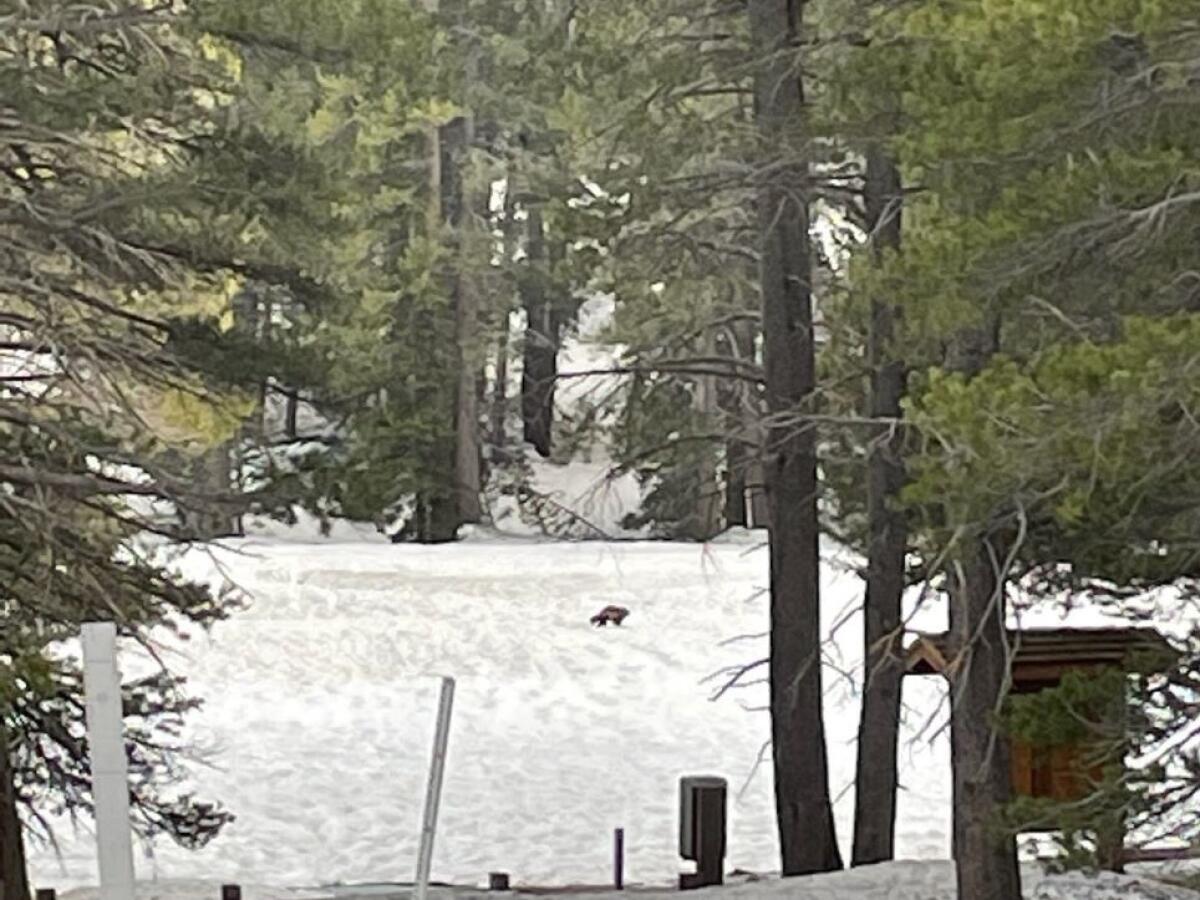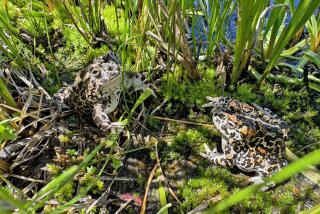Wolverine mystery: Researchers scour California high country, but rare creature remains elusive

O wolverine, where art thou?
Two months have passed since the creature was last seen roaming the California wilderness, vexing scientists who are working to track down the rare specimen.
According to the California Department of Fish and Wildlife, there were eight reports of the animal over a two-week period, with the last on May 27. All reports came from the High Sierra region of the state, including Yosemite National Park and Inyo National Forest.
Julia Lawson, an environmental scientist with the agency, said there are several potential reasons California’s wolverine — only the second specimen to be verified by experts in the last century — has gone AWOL.
“One possibility is that was just a period of time of a lot of people recreating,” Lawson said. “It was kind of prime time for backcountry skiing.”
The wolverine was reported twice in Inyo National Forest and once in Yosemite National Park in May. The creatures are genetically related to weasels and badgers.
With the ski season largely over, fewer people are out in the remote mountain region — meaning fewer chances to encounter the wolverine. Despite some remaining snowpack in the Sierra Nevada, the melting snow has also made it less likely the wolverine would leave tracks, according to Lawson.
Wolverines lived in the Sierra Nevada until 1922, when the population was destroyed by hunting, trapping and poisoning. The solitary creatures are able to traverse great distances, with the nearest populations living in Washington and Idaho.
Before this year, the last wolverine sighting in California was in 2018. This year’s sightings are believed to be of a different animal.
Little is known about this latest wolverine because researchers have been unable to retrieve a DNA sample. Since the sightings, Lawson and her colleagues have worked to track down the creature, but to no avail.
“We are definitely coming up with nothing at this point,” she said.
California’s only known wild wolverine is still alive and roaming somewhere in the Tahoe National Forest, but he is nearing the end of his natural life.
The agency has deployed multiple strategies to track down the creature, including using a network of remote cameras stationed throughout the high-elevation Sierras.
One method involved using a scented lure designed by carnivore trappers to attract the wolverine toward the cameras. Researchers also put out “hair snares,” baited bristles that can trap hair to yield DNA samples.
“We also kind of anticipated what we thought might be its likely travel path and tried to get a few steps ahead of it and put out cameras, also with deer meat as bait,” Lawson said.
Despite the heat waves, a summer snowpack this deep hasn’t been seen in the Eastern Sierra in decades
Lawson speculates the lack of any concrete signs of the wolverine means it could have left California, especially given that the previous wolverine was spotted several times using bait lures.
“I would hope if this new individual was sticking around this area, that we would eventually pick it up,” Lawson said.
While it is possible the wolverine has left California for good, it may also just be eluding researchers. Only time will tell.
“We’re always being surprised,” Lawson said.
More to Read
Sign up for Essential California
The most important California stories and recommendations in your inbox every morning.
You may occasionally receive promotional content from the Los Angeles Times.













